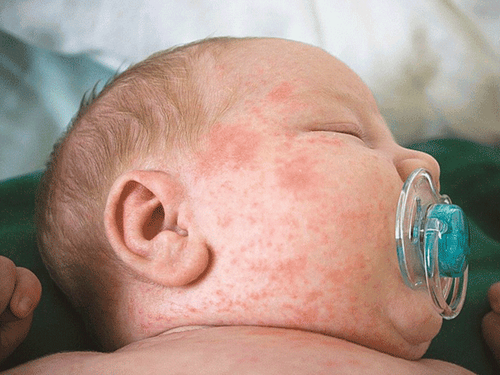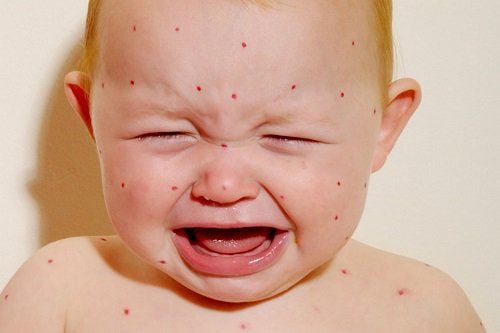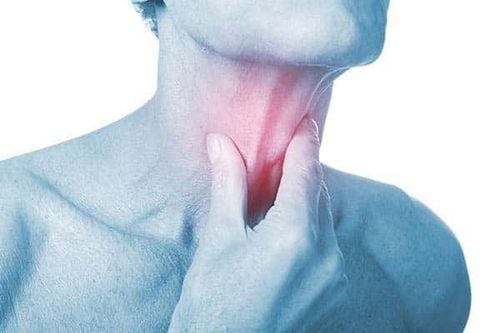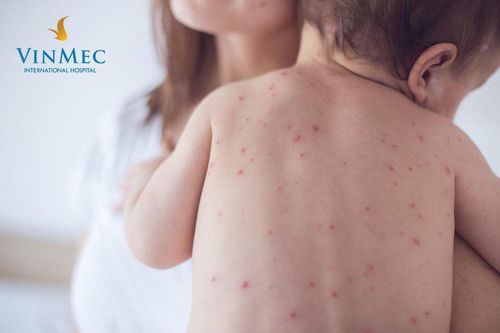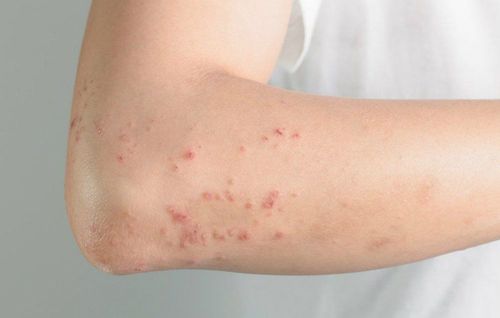This article is based on professional consultation with Specialist Level II, Dr. Huynh Thi Diem Thuy, Vaccine Consultant at the Department of Pediatrics and Neonatology, Vinmec Central Park International General Hospital.
Measles is an acute infectious disease that spreads rapidly. If not treated promptly, it can lead to serious complications such as pneumonia and malnutrition. Therefore, it is essential for parents to have the necessary knowledge to monitor and care for their children effectively.
1. Four Key Principles for Caring for Children with Measles
When caring for children with measles, parents should remember the following four principles:
First, supportive treatment for symptoms, such as fever, cough, nasal congestion, red eyes, and mouth ulcers.
Second, provide sufficient nutrition and increased breastfeeding.
Third, giving vitamin A supplements.
Fourth, monitoring for severe symptoms:
- Fever: If your child has a fever, dress them in loose clothing and avoid overdressing or wrapping them in a blanket. Use antipyretics if the fever exceeds 38.5 degrees Celsius. Encourage more breastfeeding and fluids.
- Cough: If your child has a cough that is not accompanied by rapid breathing, you may administer cough medicine as prescribed by a doctor or try safe herbal remedies like lemon tea or honey. (Consult a doctor before giving honey, as it is not suitable for children under 1 year old.)
- Nasal Congestion: using saline solution to clean your child’s nose before breastfeeding or eating.
- Red Eyes (Conjunctivitis): Wipe your child's face gently with a soft, wet towel. If their eyes are sticky, seek medical attention immediately.
- Mouth Ulcers: Have your child rinse their mouth with clean water (preferably saline) at least four times a day, and ensure they are drinking water regularly.
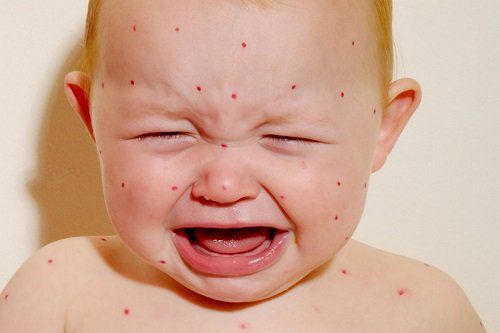
2. Methods for Caring for and Monitoring Sick Children at Home:
- Take the following isolation measures:
- Isolate sick children from healthy ones.
- Administer fever-reducing medication as prescribed by a doctor when the fever reaches 38.5°C or higher.
- Caregivers should wear masks and wash their hands before and after contact with sick children.
- Personal Hygiene: Maintain personal cleanliness: bathe daily, avoid exposure to cold, change clothes regularly, and keep the surrounding environment clean and well-ventilated. Avoid misconceptions like not bathing or avoiding drafts, as these can worsen the child's condition.
- Keep nails trimmed to prevent scratching the skin, which can spread the illness or exacerbate it.
- Administer 0.9% saline in the child's eyes three times a day.
- Continue breastfeeding for children who are still nursing and supplement with appropriate nutrition if the child is six months or older.
- Prepare soft, easy-to-digest foods, cooked thoroughly, and offer them in small, frequent meals while considering the child's preferences. If the child experiences diarrhea or pneumonia, include zinc supplements in their diet. Provide fruit juices rich in Vitamin A or Vitamin A supplements according to the following dosage:
- For children under 6 months: 50,000 units per day for two consecutive days.
- For children aged 6-12 months: 100,000 units per day for two consecutive days.
- For children over twelve months and adults: 200,000 units per day for two consecutive days.
- If there is a Vitamin A deficiency, repeat the dosage after 4-6 weeks.
3. When to Take a Child to the Hospital for Examination and Treatment
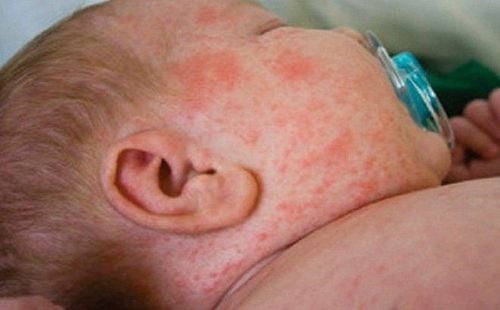
Children should be taken to the hospital immediately if they exhibit any of the following symptoms:
- Rapid Breathing: Rapid breathing is defined as a breathing rate >50 breaths/minute for children under one year old, and >40 breaths/minute for children over one year old.
- Signs of dehydration include dry lips, crying without tears, excessive thirst, and fussiness.
- Wheezing or a hoarse voice during crying.
- Mouth ulcers, loss of appetite, diarrhea, vomiting, eye pain, ear pain, or a fever lasting more than four days.
Hospitalization is needed when:
- The child cannot drink water or breastfeed.
- The child experiences convulsions, has a high fever that does not decrease, appears lethargic, or has difficulty waking up.
- The child has multiple mouth ulcers.
- The child shows rapid breathing, chest retraction, or wheezing.
- Severe dehydration symptoms, include dry lips, sagging skin, crying without tears, and reduced urination.
- The child is severely malnourished.
- There are corneal ulcers, impaired vision, or mastoiditis.
Vaccination against measles is recommended for children from 9 months of age as the best preventive measure against the disease. If a child shows abnormal signs of measles, take them to a medical facility for examination and treatment. Avoid using medications indiscriminately without a doctor's guidance.
To arrange an appointment, please call HOTLINE or make your reservation directly HERE. You may also download the MyVinmec app to schedule appointments faster and manage your reservations more conveniently.
